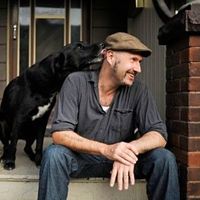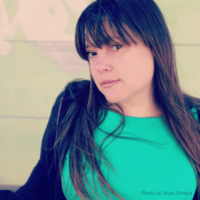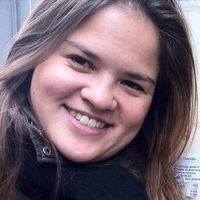Black Tie Scribes: Guest Authors on the clothes, books, and glam at the Writers' Trust Gala
The Writers' Trust of Canada is one of the biggest supporters of authors in Canada, giving out a staggering $500,000 each year directly to writers. Known for their awards (including the Journey Prize and Weston Prize), their Yukon-based writing retreat, and their unique emergency grant programme The Woodcock Fund, the Trust is the biggest non-governmental funder of writers in Canada.
One of the Trust's main fundraising activities is their annual gala, which features a Canadian writer as a guest at each table. This year also marks the second presentation of the Writers' Trust Fellowship, a $50,000 prize awarded to a writer of exceptional creativity working in any genre. The three year initiative celebrates Canada's 150th birthday, and last year was presented to Newfoundland author Michael Crummey.
We're excited to talk to four of this year's guest authors, who will head to the Ritz-Carlton tomorrow night to celebrate with their fellow authors, as well as donors, media personalities, and hundreds of book lovers.
Tim Falconer, Ray Robertson, Alexandra Shimo, and Zoe Whittall tell us about their gala experiences and expectations, the author they'd most like to share a table with, and, of course, what they'll be wearing for the big night.
Open Book:
Is this your first time attending the Writers' Trust Gala? If so, to what aspect of the event are you most looking forward? If you've attended before, what is one of your favourite gala memories?
Tim Falconer:
This will be my first Writers’ Trust gala so I am not really sure what to expect. As much as I am excited to go, these big formal parties scare me a little. I fear I won’t know anybody while all the other guests will know everyone in the room. So the aspect I am most looking forward to is the relief I will feel when I find someone who will talk to me.
Ray Robertson:
Convincing the late Paul Quarrington to brave a snowstorm and catch a cab back to my house afterward so we could drink more wine and listen to the new Townes Van Zandt CD I’d just gotten in the mail. It was one of the last times I got to spend time with him alone.
Alexandra Shimo:
This is my first Writers’ Trust event so I'm going by what I've heard which is that the type of people who attend are avid readers. It's always great to talk books with people who are really passionate about reading. Such a treat.
Zoe Whittall:
I believe this will be my third time attending. I always have a great time. But a favourite memory is that last time I got to sit at a table with two artists I admire so much – Don McKellar and Patricia Rozema.
OB:
Each guest at your table receives a copy of your latest book as a gift. Tell us about your recent book.
TF:
My most recent book is Bad Singer: The Surprising Science of Tone Deafness and How We Hear Music. I started with a simple question: could I learn to sing? After I was diagnosed with congenital amusia—the scientific term for tone deafness, which afflicts only 2.5 percent of the population—my second question was: what was going wrong in my brain? And while I love music, most amusics are indifferent to it, or even actively dislike it, so my third question was: what are we really hearing when we listen to music? Trying to answer these questions was a lot of fun.
RR:
Picking up where Samuel Johnson left off more than two centuries ago, Lives of the Poets (with Guitars) offers up an amplified gathering of thirteen portraits of rock & roll, blues, folk, and alt-country’s most inimitable artists. The book explores the “greater or lesser heat” with which each musician shaped their genre, while offering insight into their often tumultuous lives. There are essays on Gene Clark, Ronnie Lane, The Ramones, Sister Rosetta Tharpe, Townes Van Zandt, Little Richard, Alan Wilson, Willie P. Bennett, Gram Parsons, Hound Dog Taylor, Paul Siebel, Willis Alan Ramsey, and John Hartford.
Your CanLit News
Subscribe to Open Book’s newsletter to get local book events, literary content, writing tips, and more in your inbox
AS:
My most recent book is called Invisible North: The Search for Answers on a Troubled Reserve. It's part memoir of the four months that I lived in Kashechewan, a troubled reserve on the James Bay coast of northern Ontario, and part history of the Canadian reserves. In 2010, I moved there to do a documentary for CBC radio. Kashechewan had already become known for a series of crises – the 2005 water crisis, the regular flooding, the 2007 suicide where 21 people tried to take their own lives, most of them children. These events were disturbing and heart-breaking. However, beyond the headlines, it was hard to know what was really going on. There was a thinness to the reporting: the basics were covered, but key details were missing. Unfortunately, that's often the case with the journalism about First Nations communities; the core facts and statistics are reported, but because of linguistic and cultural barriers and the challenge of distance, the real story, i.e. the one about the people and history, is absent. Lack of knowledge is never good, and it has consequences for these communities, the public discourse and truth and reconciliation. I wanted to bear witness, so I packed up and headed north. Living there was an experience that I wouldn't change for the world, but like many experiences that change us, I had to confront many difficult truths.
ZW:
The Best Kind of People is a novel about what happens when someone you love is accused of something unthinkable. Narrated by the family of a much admired teacher who is arrested on assault charges and held until trial. What happens to the love? How do you negotiate all the complicated feelings that arise when this happens?
OB:
What will you be wearing to the gala?
TF:
I’m afraid that what I end up wearing is destined to be a game-time decision.
RR:
Thoreau wrote “Beware of all occupations that require the purchase of new clothing.” Enough said.
AS:
I recently became a new mum, so none of my clothing fits! An excuse to go out and buy something sparkly at Fancy Dan.
ZW:
A black cocktail dress and some new boots I bought for the Giller ceremony.
OB:
What Canadian writer, living or dead, would you most like to sit next to at dinner? What might you ask him or her?
TF:
I’d like to sit beside Barbara Gowdy. I love her books and The Romantic is one of my favourite novels. I think she’d be a really neat person to talk to so I would try to ask as few stupid questions as possible and just listen to whatever she had to say.
RR:
No doubt, Mordecai Richler, an early inspiration and a genuinely world-class writer. I would like to have asked him if he needed anything from the bar.
AS:
I recently read the brilliant book Outline by Rachel Cusk. The Canadian-born novelist explores the fluidity of female identity through several narrative techniques, including by giving very little details about the main narrator. We know she is an adult woman, but that's about it. Instead, she listens, encouraging others to confess. We are left with questions and a sense of absence. After reading the book, I wondered whether she had conveyed a core truth about being a woman today, i.e. that sense of being other in what is in many senses still a patriarchal society, or simply explored some of the recent tensions in her own life. And I'm always interested in writers who experiment with form to make observations about identity (Sheila Heti is another example), and how they achieve narrative coherence without relying on the foundations of plot and character development.
ZW:
Oh wow, what a difficult question! Perhaps Leonard Cohen because I saw him at the hardware store in Montreal when I was 19 and regret not saying anything; or perhaps Jane Rule.
_________________________________________________
Tim Falconer is an award-winning journalist and the author of three book of nonfiction. He teaches journalism at Ryerson University in Toronto and Creative Writing at the University of King’s College in Halifax.
Ray Roberston is the author of the novels Home Movies, Heroes, Moody Food, Gently Down the Stream, What Happened Later, David, and I Was There the Night He Died, as well as three books of non-fiction, Mental Hygiene, Why Not? Fifteen Reasons to Live, and Lives of the Poets (with Guitars). His next novel, 1979, will be published in the fall of 2017. His work has been translated into several languages. Born and raised in Southwestern Ontario, he lives in Toronto.
Alexandra Shimo is an author and journalist based in Toronto. She is the author of the Governor General’s Literary Award for Non-Fiction-nominated Up Ghost River and Invisible North.
Zoe Whittall is the author of three poetry collections and four novels, the most recent of which, The Best Kind of People, was a finalist for this year’s Scotiabank Giller Prize. She was awarded the Writers’ Trust’s Dayne Ogilvie Prize in 2008.




